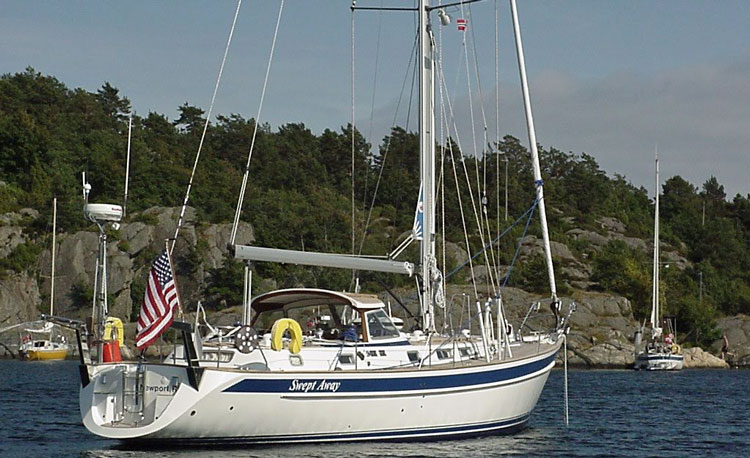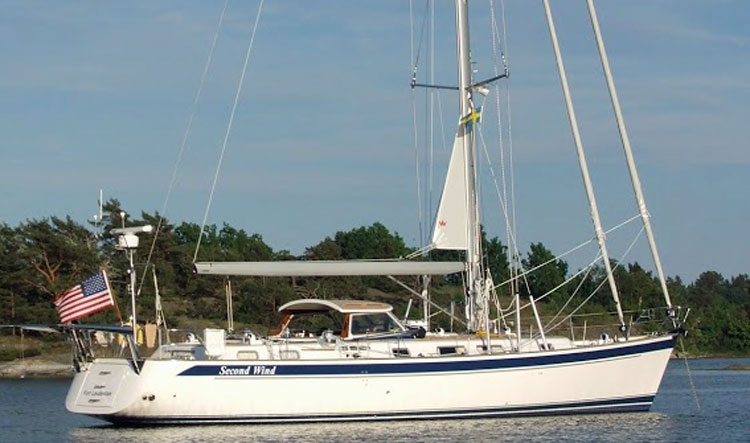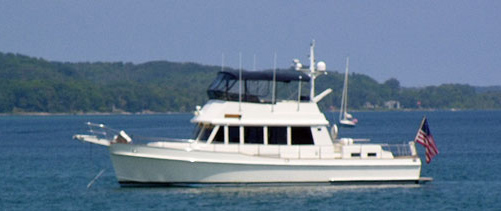 |
 |
 |
Sunday, June 16, 2013, in Orikum, Albania
Hi everyone and a very happy Father’s Day to all. We arrived in Albania yesterday. Last time I wrote, we were in Brindisi, Italy. Here’s what I wrote about Brindisi in my journal this week.
Brindisi isn’t much of a tourist attraction for most, including us, but the place had something that made it special – proximity to Manduria. Today’s Manduria is known for its appellation-controlled wine production, but the town was one of four important bases in the region for American aircraft during World War II. Among the men who served there was my father.
He didn’t talk much about the war when I was growing up. As a navigator, he flew fifty missions in a B-24 throughout a period of about six months or so, from 1943-1944, among the first of our servicemen to arrive at Manduria Airfield, about 5 kilometers north of the town. He was a 22-year-old kid who had never been out of the Philadelphia area.
Until only recently, the closest my father ever came to describing the experience to us was to note the ironic accuracy of Joseph Heller’s novel Catch-22. After his 50 missions were over, he chose the slower return home of a ship rather than go into another aircraft, and didn’t fly again, even as a commercial passenger, for twenty years. But he always had a soft spot for Italy and for Italians.
We got some information from a web site that honors the 450th Bomb Group, printed out some maps and information, and headed out with a taxi we'd hired for the day. The road was lined with olive groves and vineyards, and sometimes vineyards bordered by olive trees. Our first stop was the airfield.
The remains of the buildings attest to the 70 years that have passed by. The taxi driver said to us, “Time has stopped here.” Stone buildings are missing their roofs and windows. The tops of trees peek up from inside the exterior walls. One building had the stenciled sign “Magazzino”, I assume for ordnance storage either for Italian stewards of the site or the Americans. Another structure, oddly, showed my first name and a large concrete heart, undoubtedly a more recent addition to the site.
Each day we’d been in Brindisi all week had been very windy (the forecast had been one reason we’d rushed to get to safe harbor), and the howling across the large open fields of the air base made the scene more foreboding than its emptiness alone. It was more emotional for me than I’d expected. My father had lived in a tent, he says, so his actual domicile wasn’t available for me to see. But I imagined him here, writing at his bed to his fiancée my mother, scared and lonely, in a painful intimacy with his diminishing crew in a way none of the rest of us will ever understand. Several times a week, he’d get into the B-24 called Gadget and fly into the air, thinking that this would be his last day on earth. It’s impossible to imagine the terror of this life. He ached for home, family, and my mother’s love. It felt as though I was visiting a shrine.
Now, my parents are both living and reasonably healthy for nonagenarians. On a positive note, having them still being around was the serenity I got from the site. The enemy shot at him as much as they could, but they missed. Now we’re all friends again. And the fact that I came to be, and that I can visit and honor the moment, well, for me, that’s closure.
Our taxi took us to Manduria town. My father’s vague recollection evokes churches and barbershops. Once the taxi was through the stone arched gate into Manduria town, the driver set us adrift for a few hours on our own. We followed the advice of some web sites I’d seen and went to the Municipio, the City Hall. Several men were chatting in the courtyard, so I asked them about a “museum” of memorabilia referred to in an article I’d come across in my research. One of the men called someone that they thought I’d want to meet. He told me that this man would speak English to me and that he’d know about this museum.
And that’s how we met Aldo, a retired teacher of English literature and a co-author of a book about the Manduria base. The book had been a labor of love for him and was written in Italian, painstakingly translated from the notes of Americans and other sources. The “museum” artifacts have been moved to a safer place for storage than the room they’d been in. But in their absence, Aldo said that he’d be happy to show us around.
Aldo was very, very generous with his time, arriving as soon as he could at City Hall and taking us around the town to show us which buildings would have been important to the servicemen like my father. He said that just across a square from City Hall, the building called “the castle” then housed a sort of Officers Club in a space that’s now a restaurant. During the war, there were dances held on the second floor. Across from another corner of the square was a building that had a bar used by American servicemen, and the other half of the building had offices housing the inevitable paperwork generated at wartime. Just outside the city gates was a church (St. Michele A.) at the end of a road, and a building next door was where you’d find the wartime brass. In front of the large church inside the gates (Santa Maria di Costant), there was an area where the “Bomb Blast” newspaper was written and later was the press room for the site.
Aldo showed us the multidenominational religious building in town (Catholics would have no problem finding their own places to worship in Italy) and the church (St. Francesco d’Assisi) where a serviceman and his Mandurian bride looked as beautiful as any couple in Hollywood. He talked of famous visitors during the war, Bob Hope, of course, James Garner, Cole Porter, and even Frank Sinatra, although Aldo thinks that Sinatra might have visited a base at nearby Lecce. He showed us a storefront that was once a barbershop. The young proprietor Francesco had gone to the airfield and gave everyone a shave. An old building off of the main street was once a movie theater that showed Disney cartoons; a closed-in arched window was at the time the place to buy tickets.
Aldo then deposited us at a lovely spot for lunch that we would never have found on our own, where we enjoyed pasta and a carafe of Primitivo di Manduria while looking over the book Aldo had written about the Americans in Manduria. Fed and fueled by our visit, we traversed Manduria’s center during its afternoon trance and rejoined our taxi for our travel back to Brindisi.
Our friends and sailing partners Sammie and Jack arrived, and our first errand was to clear out of the European Union with passport control. Art and I had done a dry run earlier in the week at Brindisi’s port, and we engaged our taxi driver Roberto to pick us up, wait for us at Border Police and take us back to the marina. Everywhere we went with Roberto, he greeted people like family. At various times, he’d wait for us outside the place we were visiting and we could see him in animated discourse with other taxis or anyone else. He seemed to know everyone in Brindisi. Indeed, we ran into him ourselves one morning when we’d taken a bus into town.
To our delight, Roberto joined us in the police offices and acted as translator and facilitator. The time-consuming effort we’d feared was averted. Roberto explained who we were and what we were doing in rapid translation, and we were stamped and sent on our way. Roberto then told us of his family band and proved his talents by performing a concert for us in the taxi on our way back to the marina.
It had been our plan to go to Montenegro, a place we’d never been and only recently open to cruisers, but they’d imposed restrictions on sailors that we just didn’t meet. You need someone to have an active boating competency certification, a requirement that we have not yet seen anywhere we’ve traveled. Ironically, Art has earned an American captain’s license, in a process so rigorous that you can use it to take passengers out for hire. Alas, he’d been unaware that he needed to renew it by paying a fee and getting a health exam every few years, and his certification had lapsed. We were shut out of Montenegro.
We’d never cruised to Albania, although we had taken a day ferry to the country during a visit to its Greek neighbor Corfu. This time, our destination was the modern marina at Orikum. The winds were moderate and from a favorable direction, and we sailed all day, motoring only a few miles to our check-in point at Vlore. It was the type of sail that one might imagine when one dreams of sailing – flat seas, pale turquoise underneath you, and carved, green mountains all around you. We passed the island Sazan on our way in, a place apparently home to about 300,000 olive trees but no civilian population. The customs experience was straightforward and relatively short in duration, thanks to our agent Marin. Young boys who’d spent the day swimming from the pier helped us tie up the boat at the commercial quay. While we waited for our papers to be processed, the kids struck up a conversation with us and taunted each other as teenagers do. When we were cleared, we motored to the marina and got settled in, tired from the early start and the long sailing day.
Today is a quiet day in town, but we’ll do what we can to experience the area.
Poppa, have a fantastic Father’s Day today. Now more than ever, all of us around you realize how lucky we have been to have you with us throughout our lives. As it turned out, it’s been a special week of memories for your kids to honor you on Father’s Day.
Love, Karen (and Art)